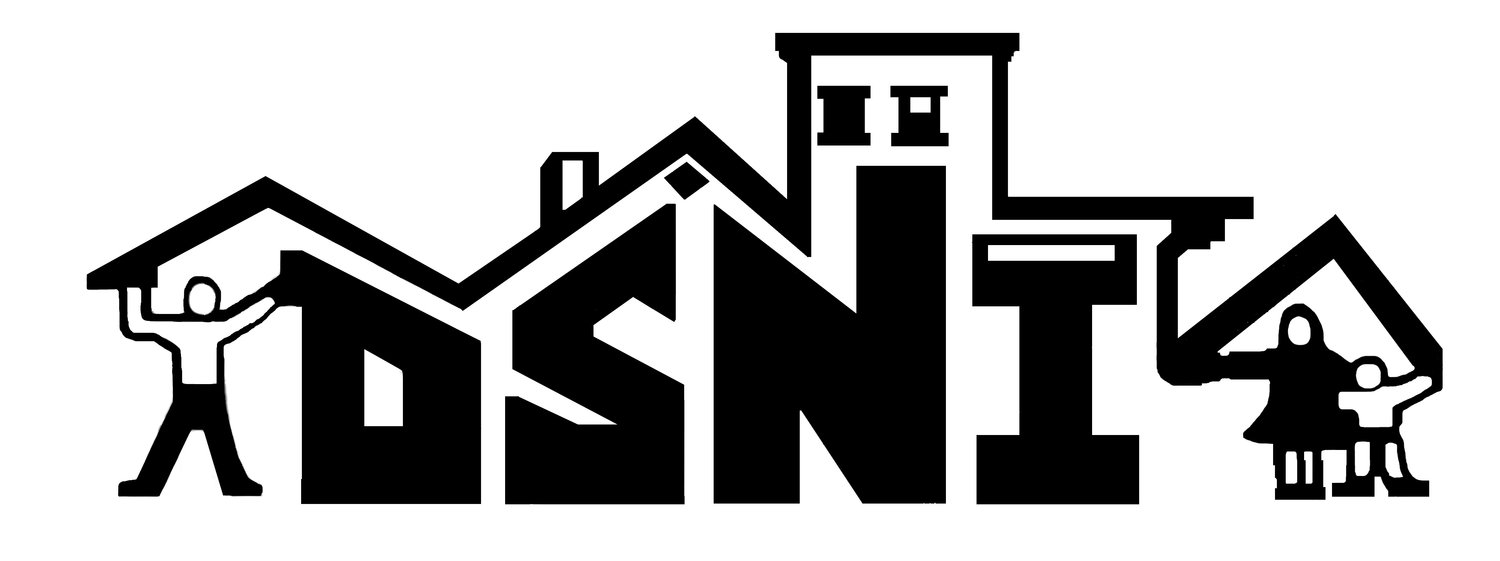Dudley Residents Explore Links Between Health, Housing, and Self-Determination
/Roxbury residents may expect to live, on average, until they’re 58.9 years old. A Roxbury resident would expect to live longer if they lived in Cambodia, Gambia, or Iraq. While just 3 miles away, a Back Bay resident may expect to live until they’re 91.9 years old. 33 years in 3 miles. Why?
To answer this question, Dudley residents were part of a groundbreaking Participatory Action Research study. The Healthy Neighborhoods Equity Fund Study worked with 9 communities across Boston, the North Shore, and the South Shore to understand the effects of transit-oriented development on people’s health. Resident Researchers gathered data from people within a half-mile of major transit-oriented development areas in their communities. The study was coordinated by the Conservation Law Foundation and supported by the Robert Wood Johnson Foundation.
Resident researchers surveying the neighborhood.
The success of the pilot year was the product of an interdisciplinary collaboration between the Dudley Street Neighborhood Initiative, GreenRoots, Redifining Our Community, Lynn United for Change, City Life/Vida Urbana, Codman Square Neighborhood Development Corporation, Southcoast YMCA, Everett Community Health Partnership, the Massachusetts Institutes of Technology Department of Urban Studies and Planning and their Community Innovators Lab, the Massachusetts Area Planning Council, Urban Imprint, Inc., the Massachusetts Department of Public Health, and the Harvard School of Public Health,
The collaboration relied on Participatory Action Research (PAR) to ensure that resident experience was honored as a key aspect of how the study was conducted and, ultimately, how knowledge about our communities gets created. To quote from a brief about PAR, prepared by Andrew Binet and Leigh Carroll:
“One resident researcher noted that, in most research processes, ‘people in the community are usually not at the table; just on the table.’ The goal of PAR is to overturn traditional hierarchies of expertise that undervalue lived experience as a form of knowledge and privilege outside observations as ‘objective.’ Residents set the terms of the research, the standards of accountability between institutional partners and communities, and drive the design of the research instruments through articulating the key aspects of the relationships between health and place on their own terms. Academic partners facilitate this process, but the relationship is a responsive rather than authoritative one.”
3-4 Resident Researchers learned about social scientific research and the PAR process, designed a survey, administered the survey in their communities, co-analyzed the preliminary results of their data, and disseminated their findings back to their communities. The study they created has dozens of questions, with 12 major themes:
Demographics
Household Composition
Housing and Neighborhood
Financial Security
Social Support
Health
Food
Discrimination
Transportation
Local Businesses
Prioritization
Ownership of Change
There were 3 major findings from the study. First, self-determination matters for health. This means that being able to meet the priorities individuals say are most important to them seems to be one of the most important determinants of physical health that the teams measured. Self-determination is more strongly predictive of health than age, income, race, or even the ability to afford healthy foods.
Second, income and social supports matter for health. Although this might not come as a surprise, income is one of the strongest predictors of whether an individual is able to cover their basic expenses each month, which is, in turn, important for health. Especially important is that social support appears to be almost equally important among people surveyed. Social supports might include favors, asking for advice, care, and material support.
Third, housing stability matters for health. Across the communities, 40-50% of respondents thought they would leave their communities in the next 5 years. A strong predictor of this is whether a respondent has moved in the past 5 years. The most common reasons someone believed they would have to move are “change of culture” and “affordability.” People who say they aren’t likely to move tended to have better self-reported mental health and they were able to have a nice home, live in a good neighborhood, live where they fit in, and that changes in policing were for them.
The Resident Researchers for the Dudley Street Neighborhood Initiative were Clifton Bennett, Krystle Latimer, Shannon Simpson, and Leah Winters. They gathered survey responses near Dudley Square, where there is major transit oriented development. Only half of our respondents reported that their health was either “Excellent” or “Very Good.” The most common top priorities in Dudley Square were said to be:
Providing for my family’s basic needs
Taking care of my own health and wellbeing
Saving money or building wealth
Having a good job
Accessing healthy, affordable food
Living in a good, safe neighborhood
The DSNI research team will be sharing more detailed results of our findings in the future. We believe this project is a major breakthrough for Participatory Action Research and hope the study continues for years to come. That said, very serious health disparities remain for Roxbury residents. Here’s data about the health of residents who live in the 02119 ZIP code versus the rest of the Commonwealth:
Compared to the rest of the Commonwealth, residents of 02119 are twice as likely to have cancer, diabetes, a stroke, or a substance abuse problem. They are almost twice as likely to be admitted to a hospital for a mental health problem. And they pay 32% more for health care per year. These disparities are deep and in need of urgent attention.
For more information about this project and DSNI’s research about health outcomes, please reach out to Andrew Seeder at aseeder@dsni.org.





